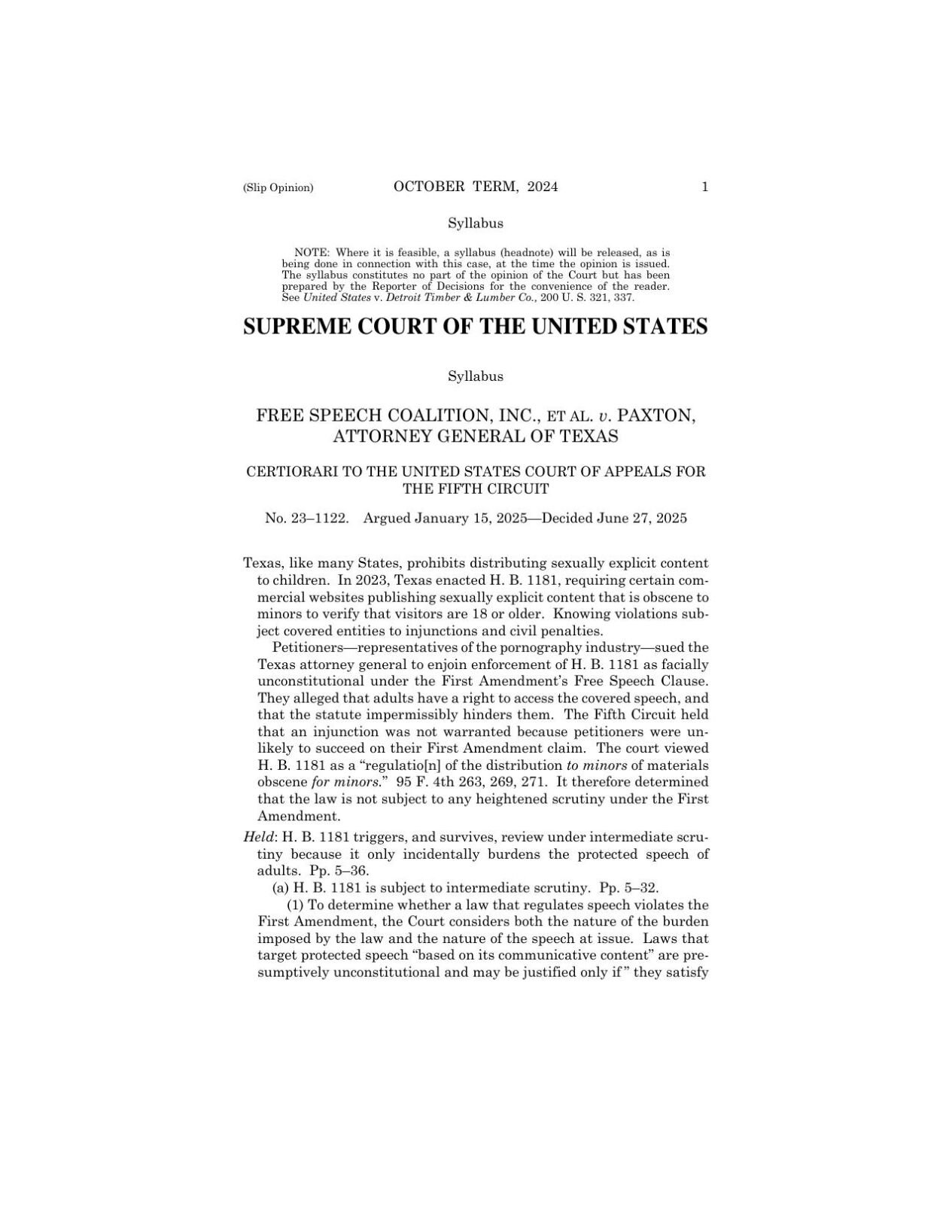(The Center Square) – The U.S. Supreme Court, in a 6-3 decision, upheld a law requiring age verification in Texas for online pornography.
House Bill 1181 required online websites where more than one-third of its content is sexually explicit to implement age verification in order to prevent exposure of content that is “harmful to minors.”
The Free Speech Coalition, which represents adult entertainment companies, including online pornography providers, challenged the law, arguing that it impedes adults’ access to pornography.
Chief Justice John Roberts and Justices Clarence Thomas, Samuel Alito, Amy Coney Barrett, Neil Gorsuch and Brett Kavanaugh ruled that states have the authority to prevent children from accessing sexually explicit content.
“The First Amendment leaves undisturbed States’ traditional power to prevent minors from accessing speech that is obscene from their perspective. That power includes the power to require proof of age before an individual can access such speech. It follows that no person—adult or child—has a First Amendment right to access such speech without first submitting proof of age,” Thomas wrote in the majority opinion.
Justice Elena Kagan, who dissented with Justices Sonia Sotomayor and Ketanji Brown Jackson, questioned why the majority believed the First Amendment was relevant in their decision.
“If the First Amendment does not protect adults in viewing obscene-for-children materials unimpeded by age verification, as the majority argues, then how could there be any constitutional objection to age verification laws like H. B. 1181?” Or said otherwise, “why would those laws have to satisfy any heightened constitutional standard, whether strict or intermediate? We have apparently arrived at a place where States can act free of all constitutional scrutiny.”
Texas Attorney General Ken Paxton called the decision a “major win.”
This is a major victory for children, parents, and the ability of states to protect minors from the damaging effects of online pornography. Companies have no right to expose children to pornography and must institute reasonable age verification measures. I will continue to enforce the law against any organization that refuses to take the necessary steps to protect minors from explicit materials,” Paxton said Friday on X.
Lawyers for the Free Speech Coalition argued that age verification for users of online pornography would impact adult users and minors.
“While the court has recognized that legislatures may limit minors’ access to sexual material reasonably determined to be harmful to them, the Court has held repeatedly that a burden on adults’ access to that content ‘can only stand if it satisfies strict scrutiny,'” lawyers for the free speech coalition wrote.


